FNJ Kathmandu Strengthens Collaboration Between Media and Local Governments
Kathmandu — The Kathmandu branch of the Federation of Nepali Journalists (FNJ) has launched a campaign to promote media development amid rising challenges faced by small-scale and self-employed media outlets.
In recent times, traditional print media such as weekly, biweekly, and monthly publications have come under threat due to the rapid rise of digital technology. To counter this growing crisis, the FNJ Kathmandu branch has intensified its “Save the Media” campaign.
Looking back at Nepal’s history, autocratic rulers—from the Rana regime to the Panchayat system—governed through oppression, injustice, and manipulation. During those times, print journalism played a vital role in raising public awareness and supporting political parties in their mission to establish democracy and later republicanism. However, the press that once empowered political change is now facing serious threats.
According to FNJ Kathmandu President Shobha Aryal, the FNJ Kathmandu branch is committed to protecting the existence of small-scale print publications and online media that have long carried the spirit of mission-driven journalism.
The Kathmandu branch is the largest in the country, comprising nearly 1,100 members, ranging from veteran journalist Kishor Nepal to those newly entering the field. Most members are affiliated with small investment media outlets.As part of its ongoing efforts to protect and promote the welfare of its members, the branch has initiated a campaign that has already started to bring a sense of relief to many journalists.
In the first phase of this initiative, FNJ Kathmandu team met with elected representatives from all 11 municipalities in Kathmandu district and submitted letters of concern. The campaign, which began in Nagarjun Municipality, concluded at Kathmandu Metropolitan City, led by President Aryal and her team.
This effort has positively impacted the relationship between journalists and local governments. During these meetings, most municipal leaders pledged to implement the key points raised by the FNJ Kathmandu branch.
One key issue highlighted during the campaign was the lack of a clear communication policy at the local level. In the past, municipalities had limited consultation with the FNJ and communication experts, highlighting the potential to strengthen collaboration with the media sector. While some budget was allocated for communication, local governments are increasingly focusing on effectively sharing their good practices with the public.
Municipal leaders highlighted the importance of responsible journalism, expressing their hope that media reports would be fair, balanced, and based on verified facts. They emphasized that accurate reporting plays a key role in building trust and strengthening cooperation between local governments and the press.
To address these concerns, the FNJ Kathmandu branch submitted a seven-point memorandum, which includes the following demands:
- Formulation of special policies and plans for the protection and development of self-employed media, recognizing that FNJ Kathmandu hosts the highest number of such outlets in the country.
- Provision of public welfare advertisements and fellowships to support media development.
- Acknowledgment of the historic significance and contributions of weekly, fortnightly, and monthly print media, with special plans from local governments to preserve and promote them, along with efforts to support the development of new media.
- Allocation of at least NPR 10 lakhs annually for training, workshops, and seminars to enhance journalists’ skills and capacity.
- Inclusive distribution of public welfare advertisements and official notices by prioritizing media operated by women, Dalits, indigenous groups, and publishers from various linguistic communities.
- Formulation of media-friendly laws and policies by local governments in alignment with the spirit of the Constitution.
- Mutual cooperation between local government programs and FNJ Kathmandu District.
President Aryal emphasized that the campaign will continue even after submitting the letters and will be closely followed up until all the demands are fully met. She reminded that mission-driven journalism was important in building Nepal’s democratic republic and new constitution. Therefore, she urged local governments to take responsibility for protecting small and self-employment-based media outlets.
FNJ Kathmandu submitted letters of concern to the following 11 municipalities: Sankharapur, Kageshwori Manohara, Gokarneshwor, Dakshinkali, Kirtipur, Tokha, Tarkeshwor, Nagarjun, Budhanilkantha, Chandragiri, and Kathmandu Metropolitan City.
The campaign is an important step in creating a strong partnership between the media and local government. It aims to help build a society that is better informed and more empowered.
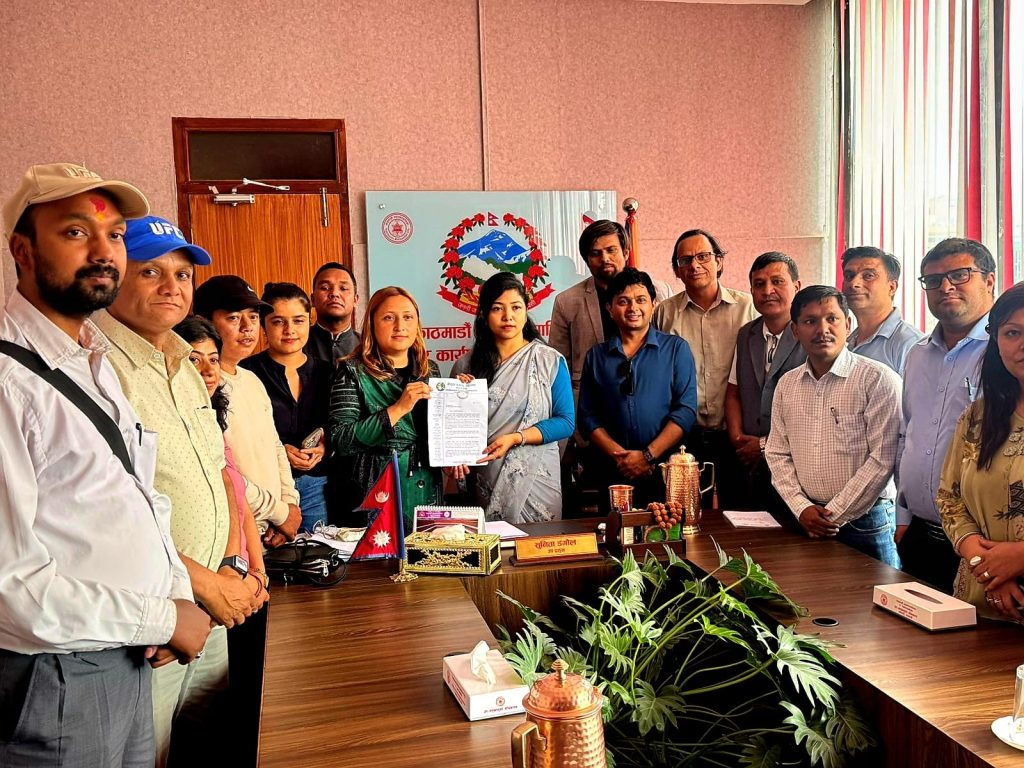
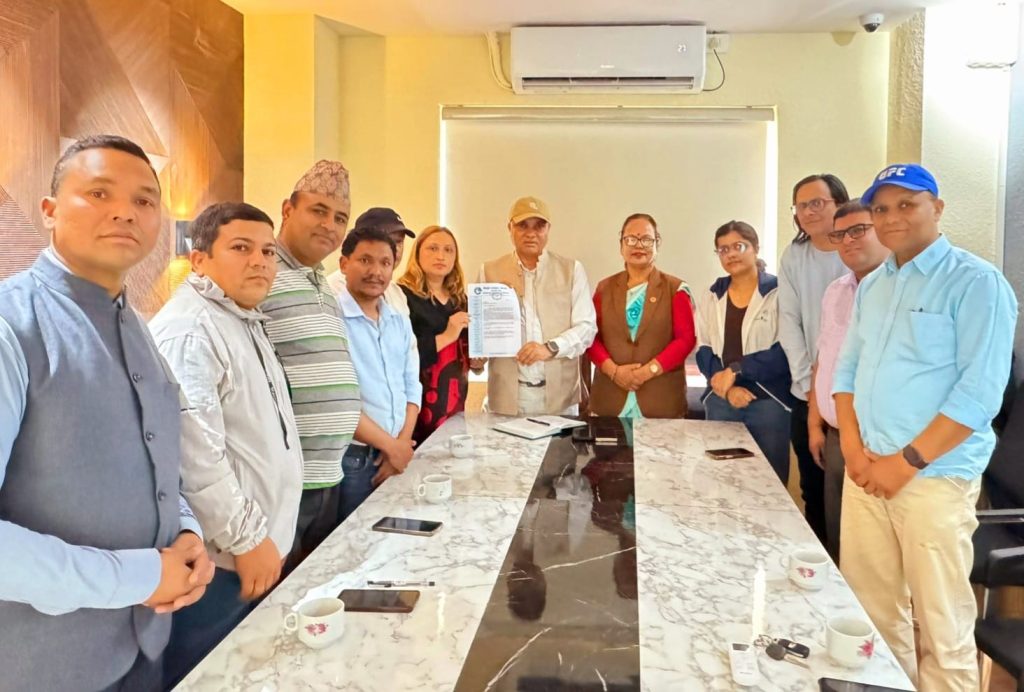
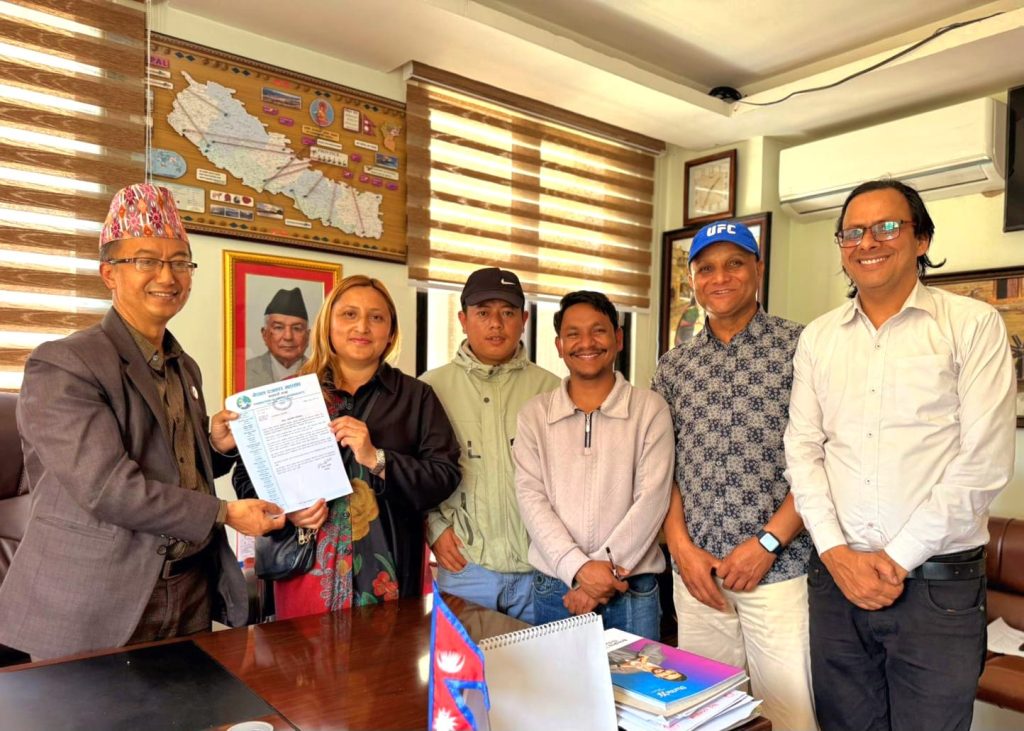



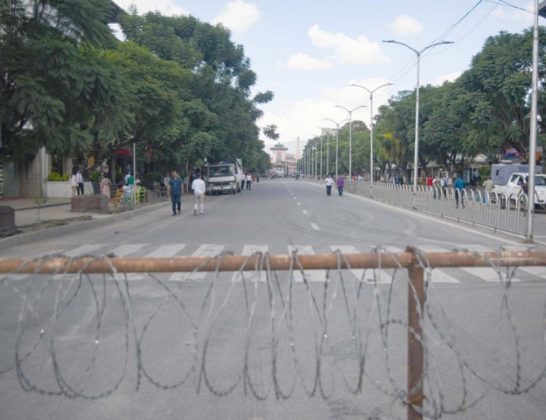

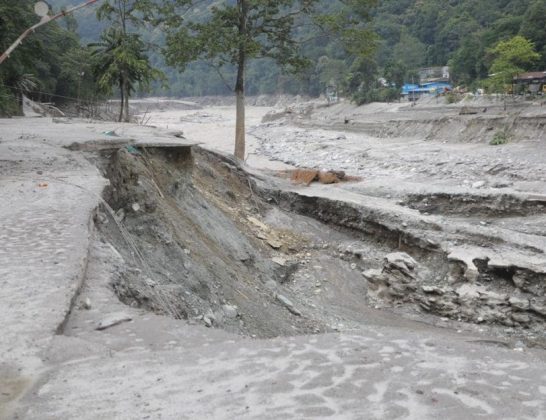
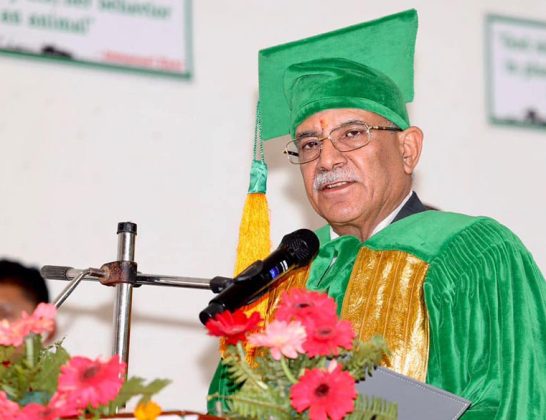


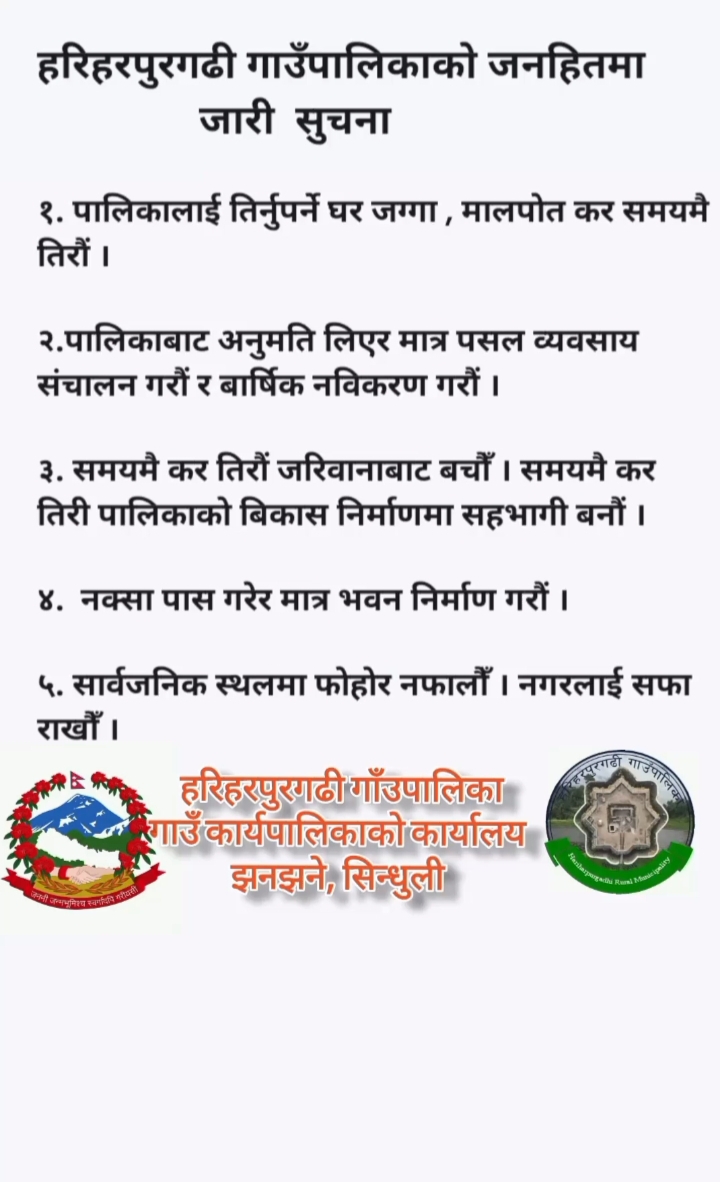
Comments